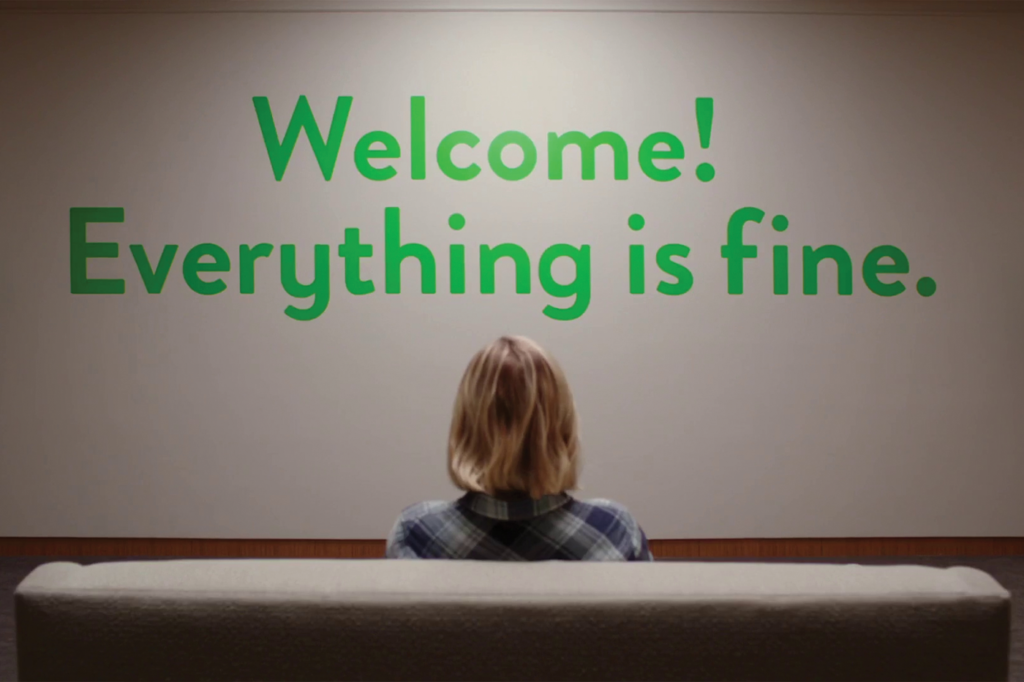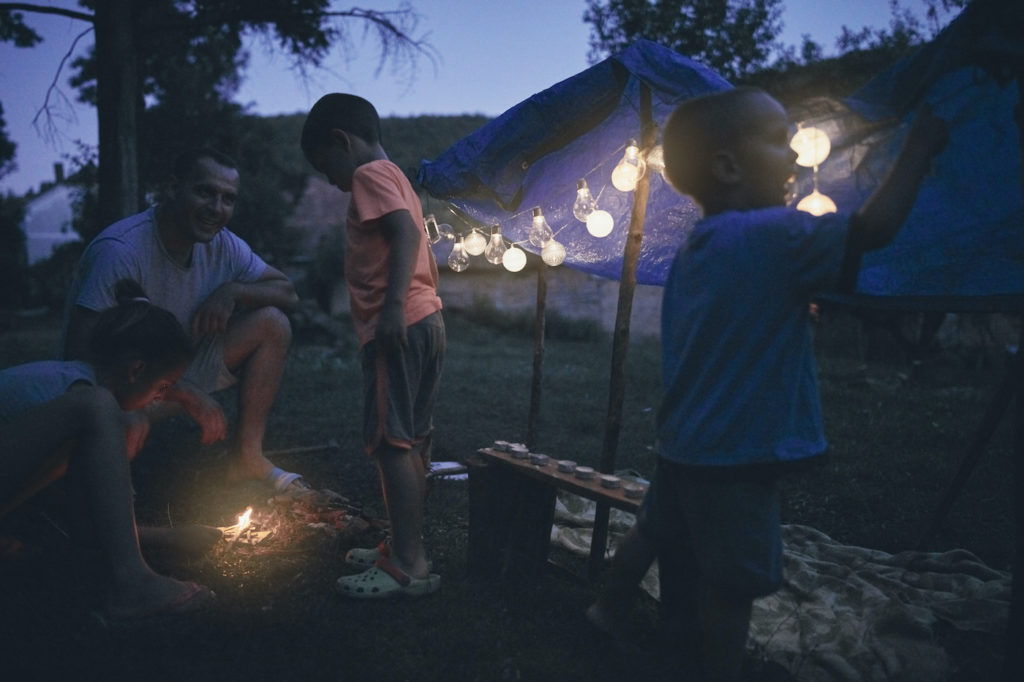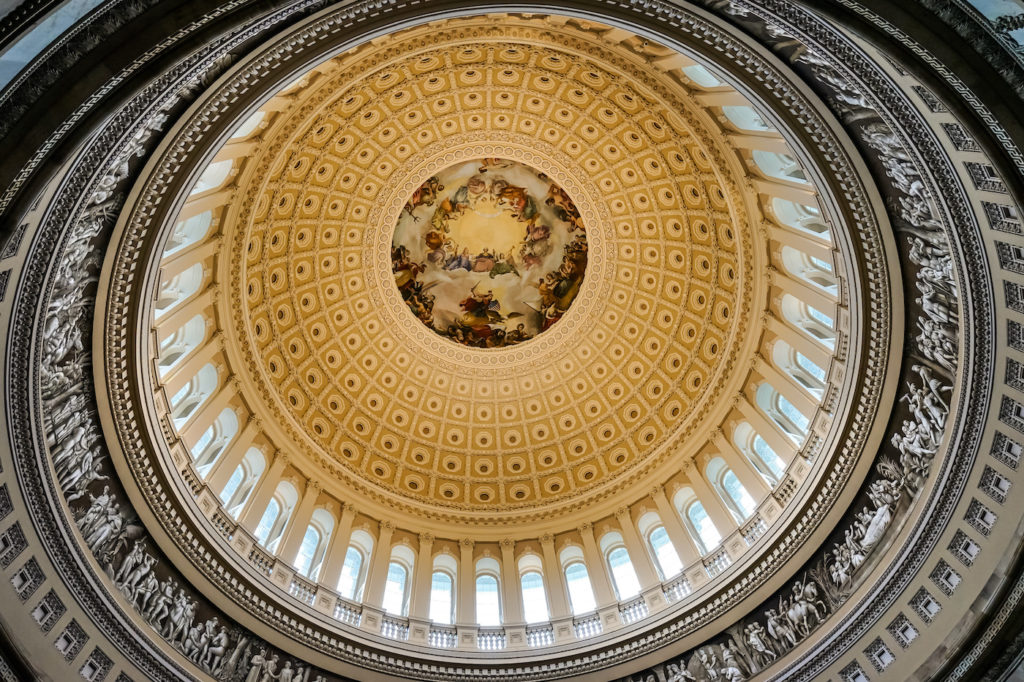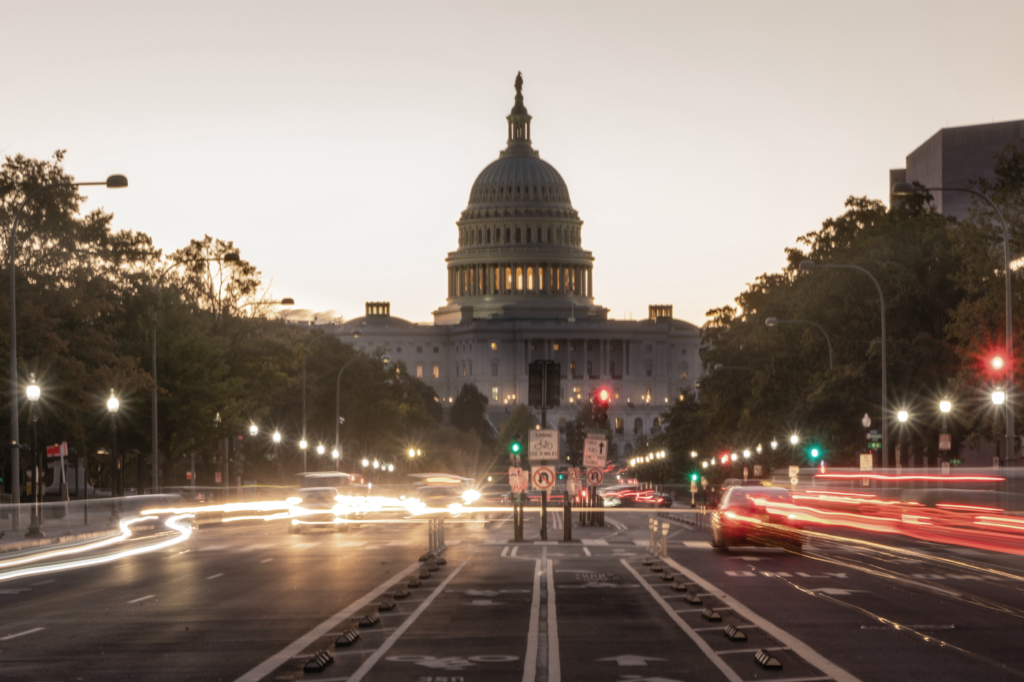Can We Measure the Value of Saving Human Lives in Dollars? Somber Calculations in a Time of Plague

In fighting Coronavirus, the precautionary principle is reasonable: we need to act so as to bring as close to zero the probability of the most extreme results. However, the precautionary principle does not point in only one direction. Closing down an entire society for a prolonged period of time is uncharted territory, with many perils. We must also bear in mind the pre-eminent importance of the common good to avoid a catastrophic social collapse.
The Strange Battle of Staying Home

My home is my battlefield, and maintaining peace and joy for my family is my fight. I cannot treat those infected by Covid-19, but I can help flatten the curve. This is my time to keep our homefires burning with gusto, as if each meal I set before my family were a punch in the teeth to the chaos caused by this deadly illness. We may be stuck at home for weeks or months, but by God we’ll have fresh sourdough bread and afternoon tea every day.
Pandemics and the Agency of Citizens

While medical experts’ job is to save lives from the coronavirus, it is the responsibility of citizens to ask and decide what makes a worthwhile life. There is more to life than mere living; our own self-respect as responsible agents, who govern ourselves under the law (human and moral), ought not be so easily jettisoned.
The End of The Good Place and the End of Man

The Good Place finale was hilarious, thought provoking, and profoundly moving. However, in failing to find our highest good and identifying the means to achieve it, the show could do little more than put a happy face on our current cultural despair. This article contains spoilers.
Cooperation, Coercion, and the Coronavirus

When times become difficult, people come to help each other as a rule. It’s not really a case of our better angels emerging; it’s our regular angels doing what they almost always do when the chips are down.
How to Flourish During the Coronavirus Pandemic: Research from the Human Flourishing Program at Harvard

Our confrontation with suffering and death provides an important opportunity for reflection. What is it that we value most? What relationships need forgiveness or reconciliation? How should we understand our lives and our own mortality? Both empirical data and religious traditions show that, by engaging in such interior reflection, it can be possible to grow and flourish even amidst great suffering.
The Coronavirus Has Unveiled a Deeper Political Disease

A crisis like a pandemic forces citizens to confront what they hold in common. But the coronavirus has revealed that many, whether boomer or millennial, do not even see themselves as citizens—as participating in and being partially responsible for the common good.
Coronavirus and Shutdowns

The Coronavirus epidemic has provided us with a lesson in how bureaucracies function in a time of crisis. It has also reminded us that education is more than merely transferring information. Real education takes place when the student and the professor meet face-to-face and just talk.
Recovering Friendship

A friend is more than a form of entertainment. The utilitarian way app designers would have us pick friends off a menu reflects quite the opposite approach. Friendships are viewed as more comfortable and more disposable than Allan Bloom, C.S. Lewis, and the Talmud suggest they ought to be.
Leisure in a Time of Coronavirus

Schools are closed. Sports and music lessons are cancelled. Everyone is at home. What are you going to do? Instead of allowing coronavirus to control your life, why not plan for leisure? We can make this evil an occasion for despair, or we can choose to see it as a “severe mercy” for our benefit, our joy, and ultimately our sanctification.
Why the Economy Needs a Theology of the Body

The promises of virtualization and automation are often exaggerated, as are their dangers. It is possible for an increasingly virtualized and automated economy to actually be more humane, but only if such an economy does justice to the human realities of incarnation and relation.
What We’ll Learn about Civil Society, Family, and Technology from Coronavirus

No one can say with precision how many people this virus will infect or kill. Predictions are difficult. But we know some things about ourselves, so we can venture to say what this unusual moment will reveal about us.
The Empirical Case against “Conversion-Therapy” Bans

Research over the last decade has solidified the finding that sexual minorities are far more likely to have faced adverse experiences during childhood—experiences that they ought to be able to explore in therapy.
People and Their Relationships

When our conception of relationships and relationship-building is based on a vision of the human person as an atomized choice maker who forms bonds for his or her benefit, we should not wonder why institutions decay. Our institutions are in crisis because we are in an identity crisis.
Tips for Talking to Your Kids about Sex: The High School Years

It is helpful for older teens to understand and admire the ideal of sexual integrity. Call them to greatness, while also setting down clear guidelines of what is and isn’t permitted in their opposite-sex friendships while they are under your care. We advise parents to initiate advanced conversations with both sons and daughters about how sexual desire is tricky to control, but absolutely manageable with time-tested strategies. Teens should also be taught about the dangers—and avoidability—of STDs, and encouraged to show compassion and empathy towards peers who don’t know how to live sexual integrity. Finally, let your teens know that you have great confidence in their ability to live out sexual integrity and practice true love and authentic friendship. But even if they make a mistake, they can always make amends, rectify, and start again.
Progress Revisited

Bradley C. S. Watson’s new book Progressivism: The Strange History of a Radical Idea points scholars in new and productive directions regarding the political thought of the Progressive Era. Watson writes with vigor and verve, making the book of great appeal to anyone trying to take the true measure of the legacy of Progressive political thought in American history.
Conservative Liberalism, Liberal Despotism: Part 2

Liberal doctrines necessarily require disenfranchising and punishing those who hold rival beliefs. Liberal ideology is jealous, and will have no other gods before it. American conservatives should reject this revolutionary liberalism and the attempts to make it the central principle of our national heritage. We need not deny that liberal ideas influenced the Founding, but we ought to follow our forefathers in tempering them.
Conservative Liberalism, Liberal Despotism: Part 1

An oddity about our current debates over liberalism and America is that both sides view the American Founding, and thus America, as fundamentally influenced by classical liberal ideology. They only disagree over whether classical liberalism is good or bad. But the historical record shows that liberal ideology was one influence among many, not that it was the definitive one.
Subjects Matter: It Is Past Time to Rescue the Study of History from Its Present Decline

It would be a mistake to believe that the current decline in historical literacy is due to the loss of some homogeneous version of the American story that used to hold the nation together. The problem is rather that younger generations are no longer being exposed to the historical themes that would most attract their interest.
Tips for Talking to Your Kids about Sex: The Middle School Years

In this segment, we continue our Tips by turning to the early teenage years, when conversations should be less about the mechanics of sex and more about the philosophy—or the meaning of sex. Remind them that sexual activity can lead to babies, and that babies born outside of wedlock suffer an injustice. Give them more advanced strategies for mind and body safety in today’s world, and balance it all out with positive messages about sex as a beautiful gift-of-self in marriage.
Venezuela’s Alleged Economic Recovery: The Truth behind the Misleading Narrative

Venezuelans are desperate to circumvent the ill-conceived regulations that are harming their nation’s wellbeing. They eagerly await a real economic turnaround—one that will protect the economic freedoms of all Venezuelans. And they know that Venezuela cannot recover without democracy.
The Post-Liberal Right: The Good, the Bad, and the Perplexing

While the post-liberal right often asks good questions, many of its answers are flawed, grounded on mistaken premises, and deeply misleading.
Essences or Intersectionality: Understanding Why We Can’t Understand Each Other

A major source of political division in America is the difference between those who believe in essences and those who follow intersectionality. Those who hold theories of intersectionality believe that human identity and much of reality itself is a construct that they can revise, not an objective reality that we can all know. This limits the possibility of political discourse: we cannot reason together if one side no longer believes in the capacity of reason to discern what is true.




